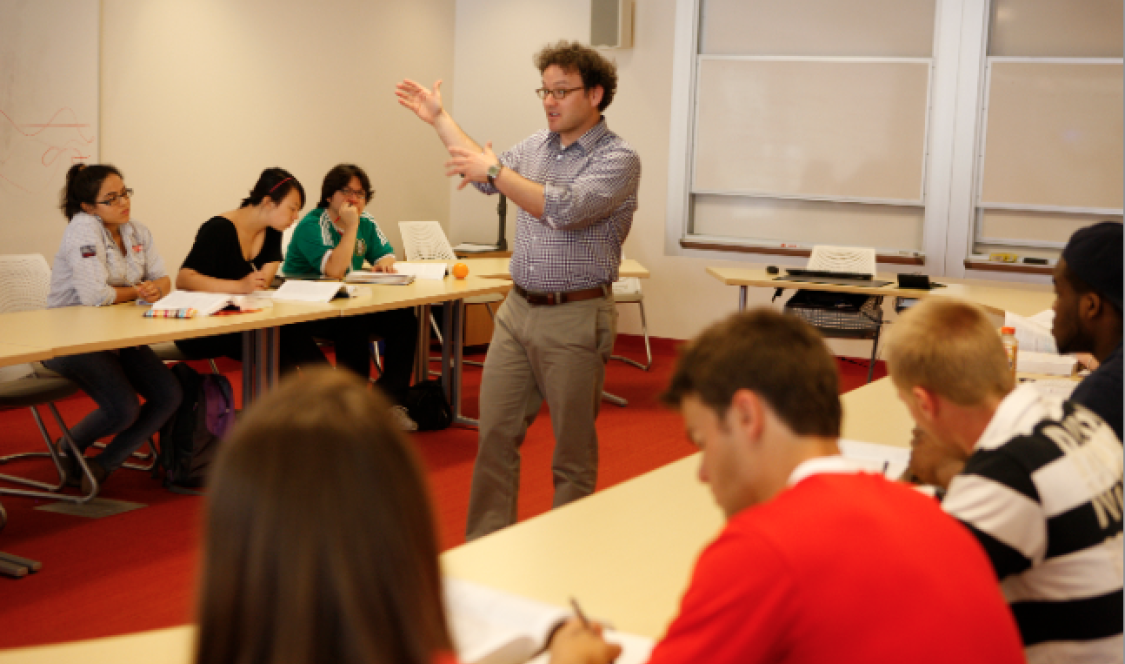As colleges and universities open their doors for a new academic year, a recent commentary in The Chronicle of Higher Education sounds a discouraging note.
Today, writes Stephen Herr in “It’s Harder Now to Change Students’ Lives, but No Less Important,” students are encountering curricula and programming that are “becoming ever more routinized.”
He likens much of the world of higher education to the fast-food industry.
“Fast-food nation and higher education are becoming ever more homogeneous,” says Herr, a former department chair at Lange College, “and it’s not surprising that students are less engaged. Why should they be? Generic only goes so far.”
This fall, however, as some 1,200 students begin a new academic season at Claremont McKenna College, they will find new and established programming intended to avoid the bleak landscape that Herr describes.
Interdisciplinary study and collaboration have long been the hallmarks of the CMC experience; and this has become an especially energized focus of Hiram Chodosh’s administration since his presidency started in 2013.
The following report provides a brief selective survey and overview of the principles and key programs at CMC aimed at building cross-curricular synergies and fostering creativity that defies becoming routinized.
Part 1—CMC’s innovative ethos; Mellon Faculty Roundtables
The curriculum at any college or university, educators says, should never become moribund. As academic lifeblood, it must be continually reassessed and renewed with an eye toward infusing new course creativity and innovative teaching techniques into the established structure.
CMC believes that the idea of how teachers conduct classes goes hand in hand with exactly what is taught—a synergy that pays academic dividends to instructors and students alike.
To that end, the College has made creativity and innovation a hallmark of acquiring a liberal arts education here for all of its students.
For Lee Skinner, Associate Professor in the Department of Modern Languages and Literatures and an Associate Dean of the Faculty, creative teaching also requires creativity on the part of students.
“As faculty, we can, and should, push our students to excel by developing courses and teaching methodologies that inspire our students to think critically,” she says.
“Critical thinking is creative thinking,” Skinner continues. “Students must be willing to think deeply and in new ways in order to meet challenges in and outside the classroom. We want to embed these practices in our students to help nurture the next generation of thoughtful, responsible global citizens who will work to improve their communities by exploring new avenues and possibilities to entrenched difficulties.”
Last fall, the College was selected to receive a Mellon Foundation New President’s Grant—a three-year, $100,000 award that permits premier faculty, via a series of roundtable think-tanks, to examine new ways to challenge students and expand their learning capabilities.
The grant has funded a number of new courses (to be developed this coming year) that will focus on all or some of the three qualities of “Creativity, Empathy and Courage” (the Mellon Foundation theme).
The grant is a source of immense potential for faculty, explains Ron Riggio, also an Associate Dean of the Faculty at CMC.
“This Mellon initiative focuses directly on how we can foster creativity, innovation, empathy, and courage in our students in deeper and more meaningful ways,” says Riggio, who is also Henry R. Kravis Professor of Leadership and Organizational Psychology.
“With the pace of technological change and the need for solutions to societal problems, creativity and innovation are critically important, and it is imperative that we foster this in our students via the classroom and co-curricular experiences,” says Riggio. “Many of our students are entrepreneurial and it is important to help them nurture and develop their creative thinking and ideas. We do this throughout the curriculum. That's a hallmark of the liberal arts.”
The Mellon grant amplifies and echoes similar dynamics demonstrated by CMC’s longstanding Philosophy, Politics and Economics (PPE) major, one of the oldest, most successful cross-disciplinary programs in the college’s history. PPE originated in the 1970s.

